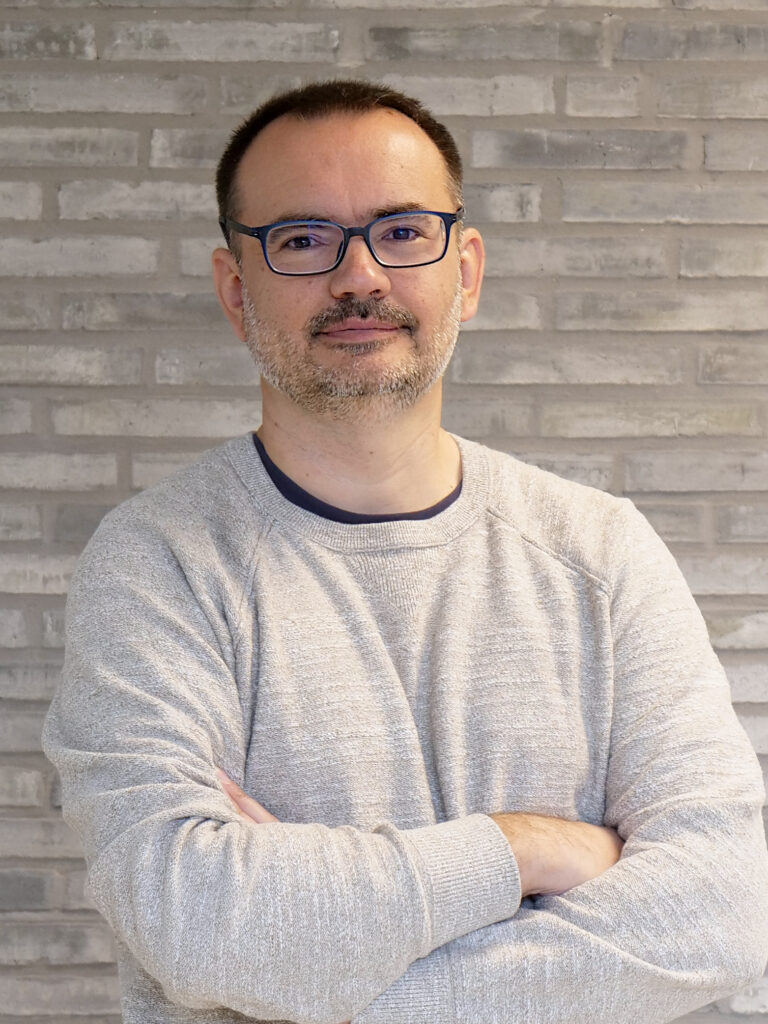Prof Jordi Cabot, who leads the Software Engineering RDI unit at LIST, has been awarded an FNR PEARL Chair endowed with 3 MEUR to set up and coordinate the BESSER (BEtter Smart Software fastER) project in collaboration with SnT (the Interdisciplinary Centre for Security, Reliability and Trust). The BESSER (BEtter Smart Software fastER) research project is aimed at empowering both developers and non-technical individuals to leverage AI advancements and low- code/no-code techniques to boost the development of complex software.

(photo by LIST)
Launched on 1 April, BESSER will be the world’s first open source intelligent low-code platform. BESSER will enable professional software engineers but also ordinary citizens and developers to model, generate, personalize and deploy the smart and complex software systems demanded by our society, industry and public administration. The project has received a funding of €3 million via the FNR PEARL programme, which offers competitive grants to attract leading researchers in strategic research fields to Luxembourg.
Building better smart software faster
A significant digital transformation is underway, disrupting all organizational activities and processes. To fully leverage the opportunities provided by this digital revolution in every business sector, organizations must adapt. Software is the infrastructure that powers this transformation, making the ability to produce high quality software a strategic economic capability. However, software development is in a state of constant crisis.
Despite improvements in tools, languages, and methods, they have not been able to keep up with the increasing complexity, demands, and trust expected from running software.
It is thus essential to build better software faster: being able to develop secure, reliable, and trustworthy systems in a shorter time to market, even by non-technical experts. More often than not, such software systems need to be intelligent and have AI-based components embedded (for example, to communicate with users using voice or text, or to predict future user behaviours based on the analysis of historical data). This is what is called smart software.
BESSER is created with this context in mind. A low-code platform for generating smart software, it will empower developers and non-tech people alike to create better and smart software faster, ultimately resulting in greater societal value. The BESSER platform will also integrate the latest advancements in Generative AI technologies to provide virtual assistants that will be able to help them in all phases of the software life cycle.
A timely innovation
Low-code application platforms accelerate app delivery by dramatically reducing the amount of hand -coding required. By focussing on the modelling of the data and the behaviour of software systems, often using graphical user interfaces, users of low-code platforms can automate the generation of most of the application code thus significantly reducing the amount of time and resources required to create new applications.
According to Gartner, the worldwide market for low-code platforms is projected to reach $26.9 billion (€24.5 billion) in 2023, an increase of 19.6% from 2022. And, by 2024, low -code application development is supposed to be responsible for more than 65% of application development activity.
The development and massive adoption of BESSER is fully aligned with LIST’s and the national strategic priorities: significantly improving Luxembourg’s competitiveness by reducing the time -to-market of its products and services, and enhancing their ability to incorporate complex features.
“There is a clear demand for this type of software. But also, a lack of skilled people to develop it, which may affect, for instance, the competitiveness of EU companies on one side and the user experience of any individual that could benefit from the existence of such software.”
“BESSER aims to democratize software development, ensuring that any citizen can adapt or even create their own smart software, while also offering solutions for more technical people looking to build high quality and scalable solutions to solve complex needs and cater to big software projects, for example. This flexibility is highly important in our current context where we face a shortage of skilled workers.” – Prof Jordi Cabot
“I am glad that we could convince Prof Jordi Cabot to develop his research and innovation activities at LIST through an FNR PEARL Chair. His work on smart software generation, leveraging AI advancements, has ground-breaking potential and will further reinforce Luxembourg’s position in this important area.” – Marc Schiltz, CEO of the FNR
Francesco Ferrero, Director of the IT for Innovative Services department at LIST said,
“Software is becoming a true foundation of modern society. It is disrupting century-old industries, such as car manufacturing, and is itself being disrupted by new discoveries such as generative AI models. Jordi and the BESSER project will contribute to position Luxembourg and the LIST as a global centre of excellence in the future of software. I am thrilled at the perspective of being part of this journey.”
Related highlights
Spotlight on Young Researchers – Revisited: From Luxembourg, to Cambridge, France, and an ERC grant
“Would matter be perfect, it would be boring” says Guillaume Nataf, who has an oozing passion for physics and teaching…
Read more
25 examples of research with impact: Towards early detection and prevention of neurodegenerative diseases
As the FNR marks 25 years since its creation, we highlight 25 examples of FNR-supported research with impact. Since arriving…
Read more
Mäin Element: Gilbert Fridgen
Mäin Element is a podcast collaboration between the FNR and Lëtzebuerger Journal. Listen to the latest episode featuring PayPal-FNR PEARL…
Read more
Introducing FNR PEARL Chairs: Historical research in the digital age – Sean Takats
Professor Takats’ PEARL project aims to transform historical research practises to meet the demands of the digital age and establish…
Read more
Introducing PayPal-FNR PEARL Chair Gilbert Fridgen – Decentralisation Technology
PayPal-FNR PEARL Chair Professor Gilbert Fridgen and research group explore the future of financial services in a data driven environment,…
Read more
Spotlight on Young Researchers: Empowering critical digital humanities practice
Digitisation has had a significant impact on humanities research: not only has it changed how many scholars conduct their research,…
Read more